America: as portrayed by video games made outside America
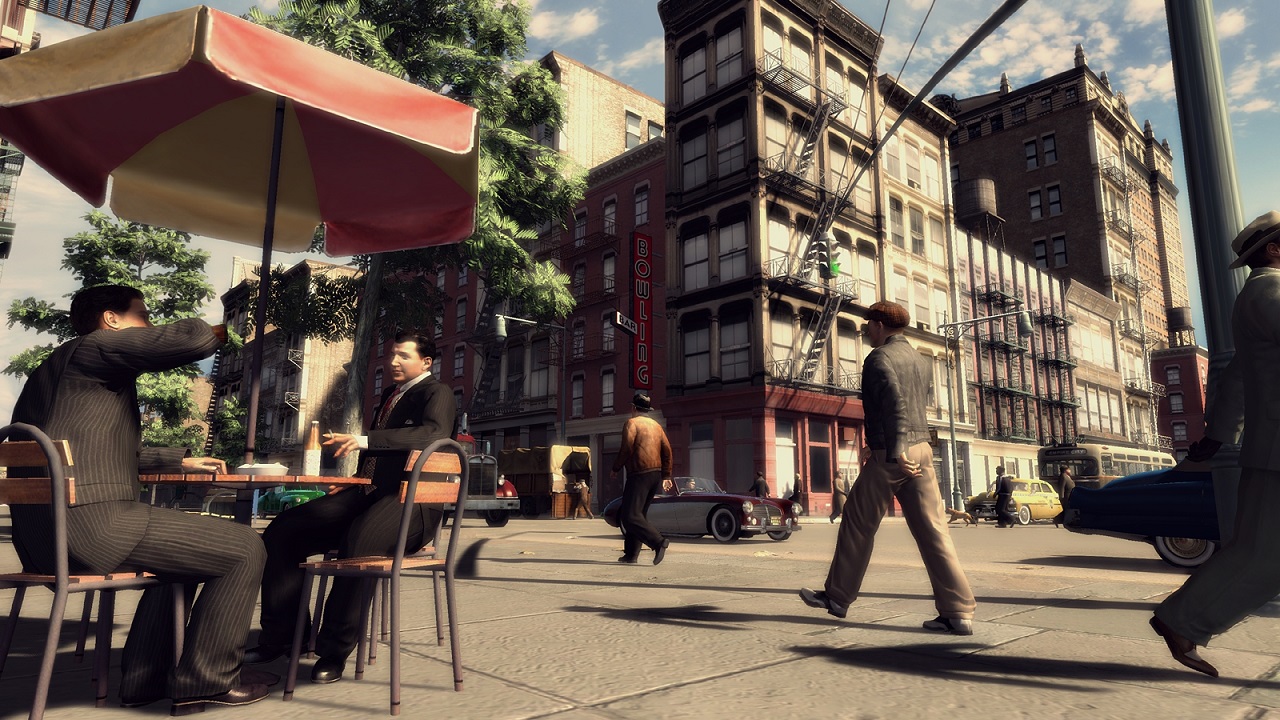
A different perspective
The United States is a vast country, filled with a wide variety of cities and individual pockets of culture, so it makes sense that many American developers often look to their own hometowns for inspiration. But game design is a worldwide industry, with studios found all over the globe, and many of them are just as intrigued by the American way of life as the people who actually live there. But in many ways, the outsider's perspective of the good ol' US of A is far more interesting, because these games often provide a different look into how the country presents itself to the rest of the world.
Sure, America eats a lot of cheeseburgers and drinks more coffee than tea, but the American experience is much more than just a few stereotypes. That's what makes these video games so fascinating: they're games about America, made outside America, and they all seem to have their own interpretations of what makes the United States tick. Whether they're focusing on American culture, a specific region in the country, or an aspect of America's own history, these games all focus on something Americans find important, and hope to give a different take from a unique perspective.
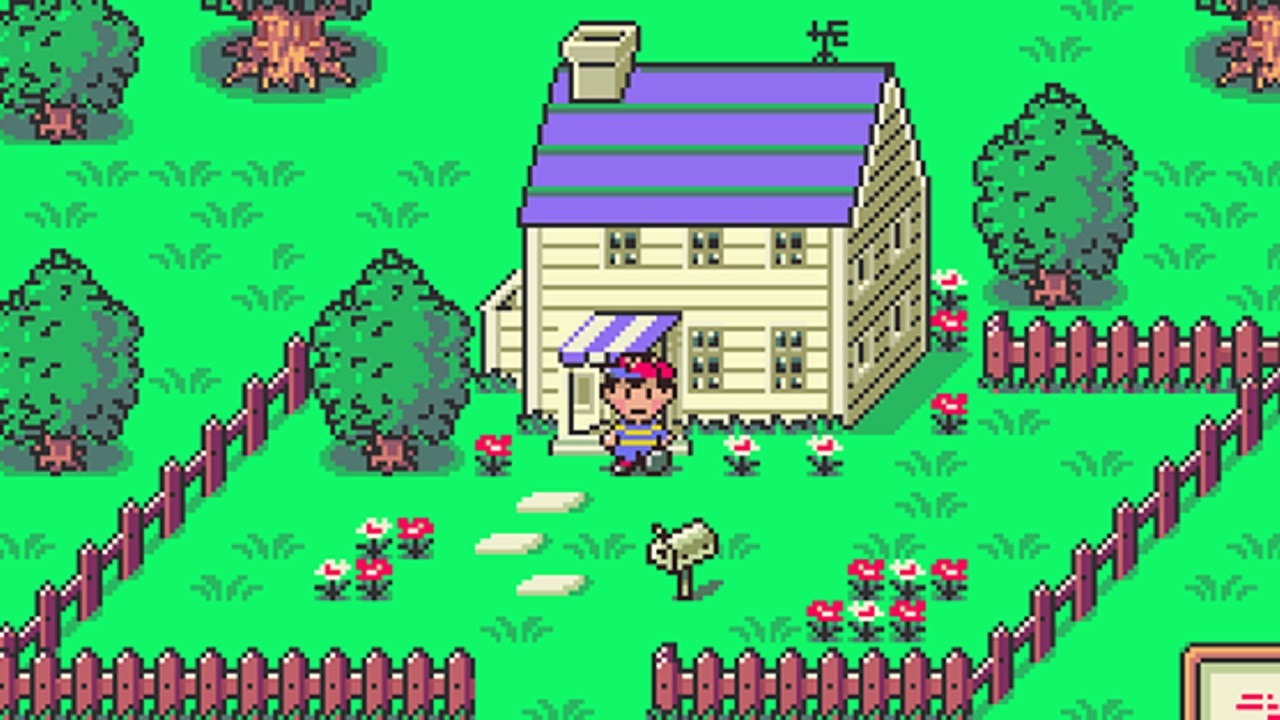
EarthBound - American Culture
Made in: Japan
Technically EarthBound takes place in Eagleland, but it's basically the United States in everything but name, and the cities in the game certainly feel like their US counterparts. You've got the sleepy burg of Onett, the busier suburbs of Twoson, and even the bustling metropolis Fourside. Only things are... off. The skate punks run around wearing onesies and brandish hula hoops. The country's biggest band, The Runaway Five, has six people in it. The town of Threed is overrun by zombies. And you're constantly accosted by Unassuming Local Guys and New Age Retro Hippies.
The best part about EarthBound isn't how it combines so many different American pop culture references and analyzes them from a completely different cultural perspective. No, the best part is that it's so sincere about it, like eating a slice of warm apple pie while watching Leave It to Beaver re-runs. EarthBound clearly comes from a place of love, even when it's portraying an evil blue-loving cult or corrupt politicians. It's a game that lets you bask in the joy of wandering through department stores or ordering pizza delivery without judging you for partaking in empty consumerism. While a game this goofy could easily come off as as mean and sarcastic, Earthbound is anything but.
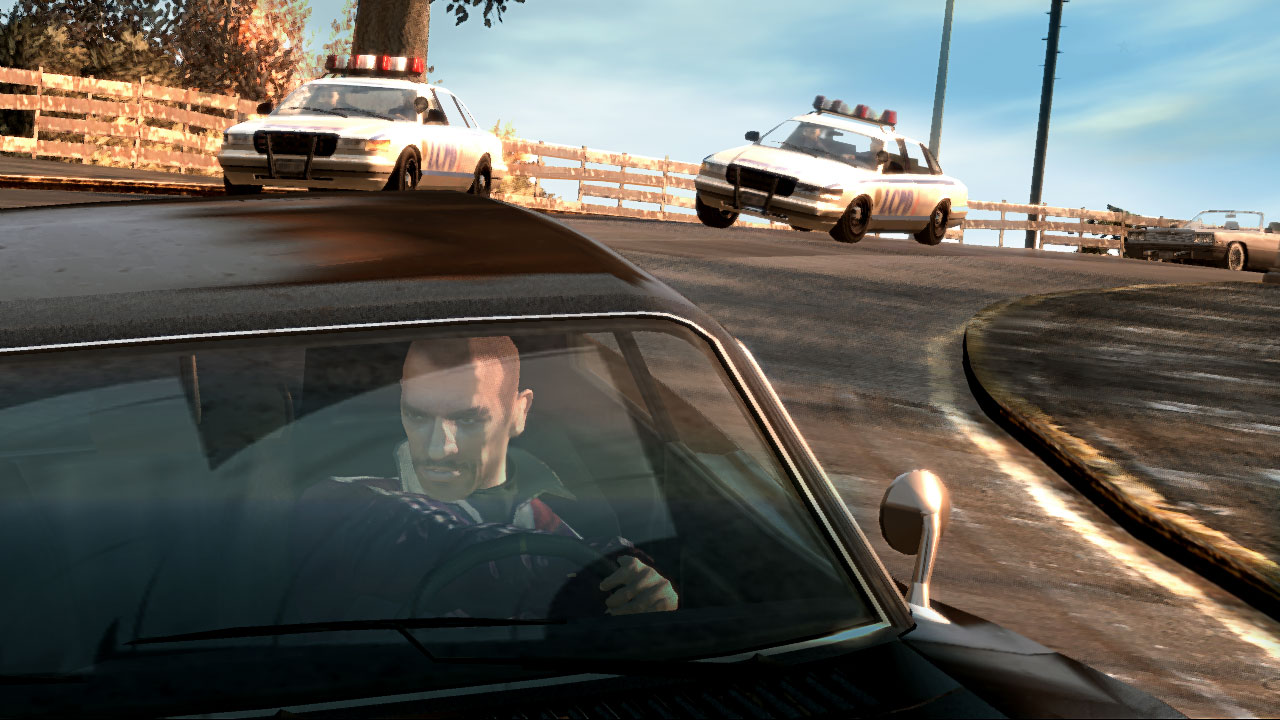
Grand Theft Auto series - The American Dream
Made in: UK
If EarthBound is the optimistic, "Gee, isn't this country swell?" vision of America, then Grand Theft Auto is its polar opposite. America is often referred to as 'The Land of Opportunity', but GTA asks a question that nags Americans in the back of their minds when someone refers to the 'American Dream': "Does the 'Dream' really exist, and if it does, is it worth the paying the price to achieve it?" GTA's answer comes with big, sardonic sneer. Many of the businesses and products sport self-aware puns for names, like Ammu-Nation or GoPostal, and many of the ads for these products make snide, pithy comments. The biggest social media platform is called Lifeinvader. And everyone is so self-absorbed it's a wonder society hasn't fallen apart at the seams. GTA's satire is incredibly over-the-top, a caricature of what America is really like, but there is truth there.
While GTA 5's depiction of Los Angeles is perhaps the most authentic, GTA 4 distinctly captures the outsider's view of what America is, as it's about Niko Bellic, a Serbian who arrives in America for the very first time in order to escape his past. To Niko, Liberty City is a massive culture shock from his relatively simple life overseas, and while his cousin Roman has acclimated to his new life of excess well enough, Niko finds the opportunity the city offers to be fleeting and empty. The one thing it does share in common with Niko's home is the one thing Niko is trying to escape: an endless cycle of violence. GTA's vision of the American Dream is distinctly pessimistic, considering the evils one has to go through in these games to attain it.
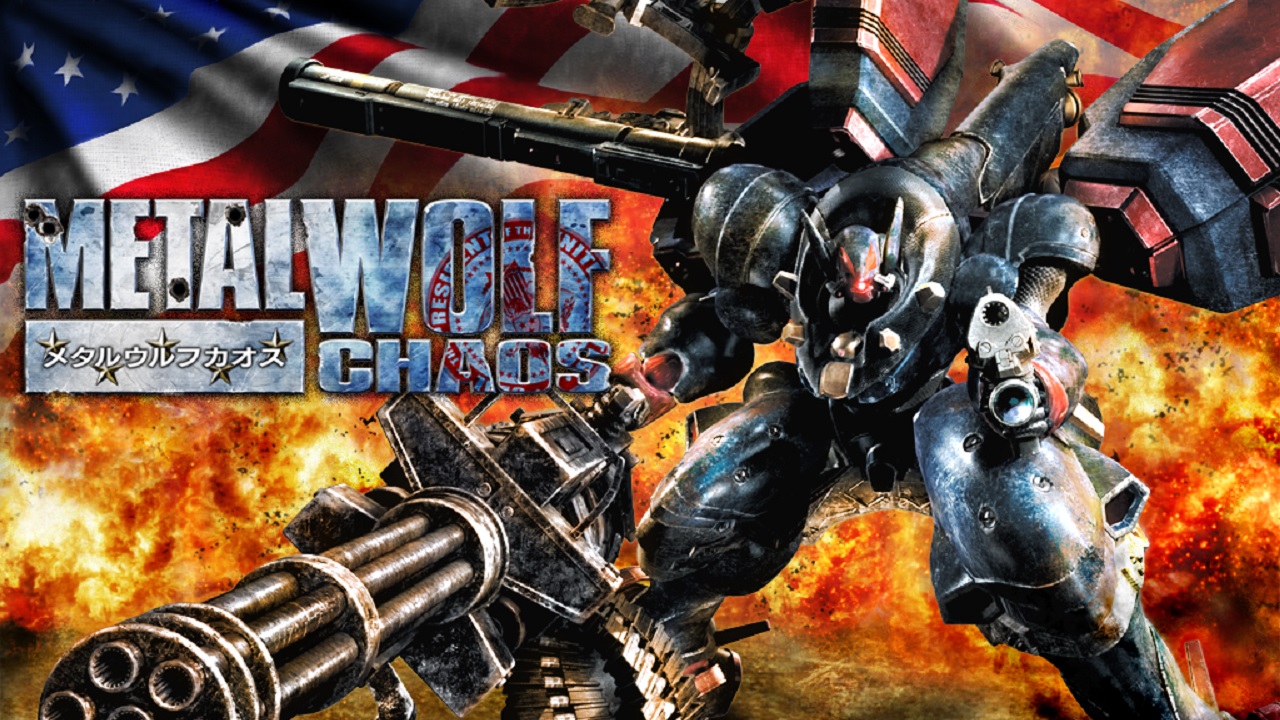
Metal Wolf Chaos - Patriotism
Made in: Japan
Did you know that there's an airstrip under the White House? Yeah, the whole ground opens up so Air Force One can take off in case Washington, D.C. is overrun by an enemy invasion. Oh, and the President of the United States is also a damn good mecha pilot. Wait, you say you missed all that stuff in history class? That's OK, because Metal Wolf Chaos is here to educate you with a patriotic grand slam of a video game.
Metal Wolf Chaos is essentially Team America: World Police: The Game as made by Japan. It is pure, jingoistic Michael Bay-hem in video game form. Evil Vice President Richard Hawk has stolen the presidency from Michael Wilson, reinstated such American gems like slavery, and is generally responsible for a litany of war crimes. So it's up to Wilson to take the White House back, which of course means travelling across the country in a giant flying mech and unleashing burning American justice on anyone who opposes him. Metal Wolf Chaos is a celebration of patriotic excess, a game that you can't help but laugh at while pumping your fist and shouting "USA!", and it's a crime that this game hasn't actually been released in the US.
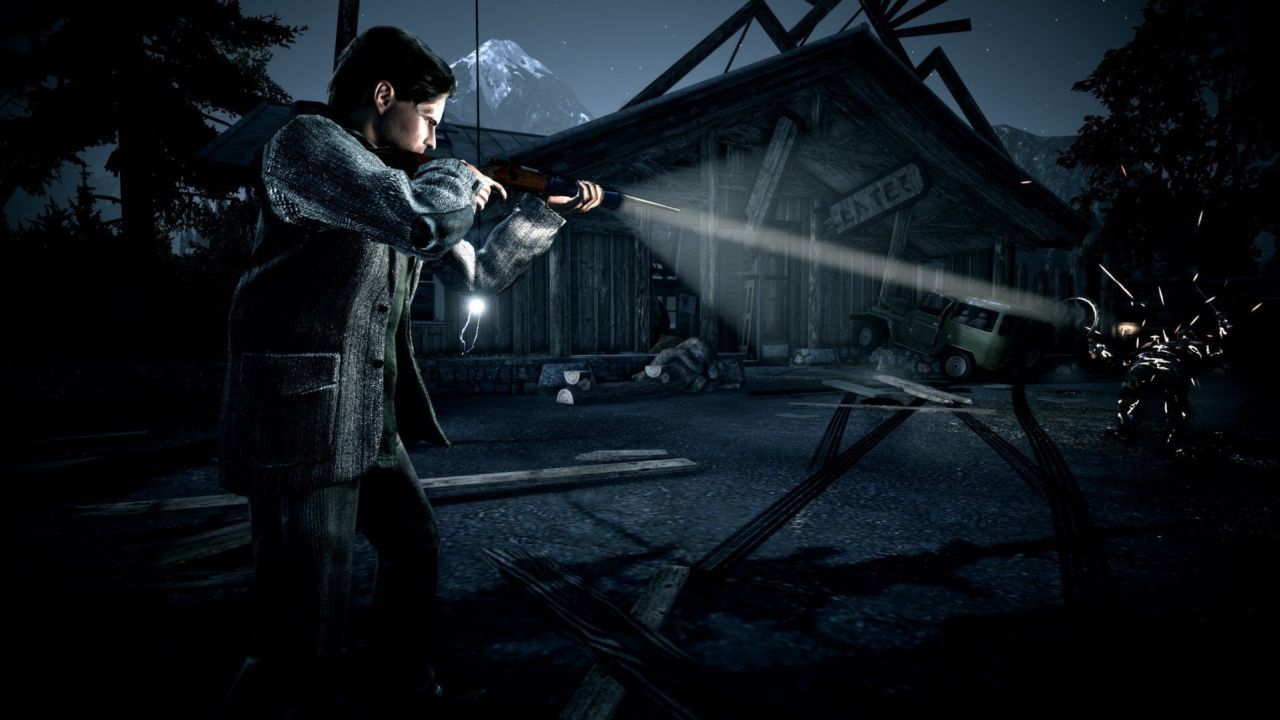
Alan Wake - The Pacific Northwest/Twin Peaks
Made in: Finland
Ever since Twin Peaks became a cult TV phenomenon, the wooded, rural areas of the Pacific Northwest have become synonymous with creeping psychological dread. It's not entirely unwarranted: some of the smaller towns you can drive through are disturbingly eerie in that 1950s-America-as-seen-through-the-Twilight-Zone kind of way (especially at night), and the constant fog and rainfall certainly don't help. Alan Wake takes these inspirations and uses them craft a truly unique horror game that feels like an HBO mini-series.
The town of Bright Falls, Washington looks like your average secluded logging town, and it's got the small town charm that goes along with that; the diner that looks like it never made it out of the mid-20th century, the kitschy city-wide festival that everyone takes part in, the dense, sprawling forest parks that are begging to be explored. It's also got a bunch of creepy shadow monsters that come out at night, but I doubt those are on the travel brochure. But it's not just the setting of Alan Wake that evokes strains of America; the game's very narrative structure resembles that of a hit American TV show. Broken up into six distinct episodes, playing Alan Wake is like experiencing an interactive version of Twin Peaks or The Twilight Zone, taking as much inspiration from American television dramas and horror fiction as it does from the rural Pacific Northwest.
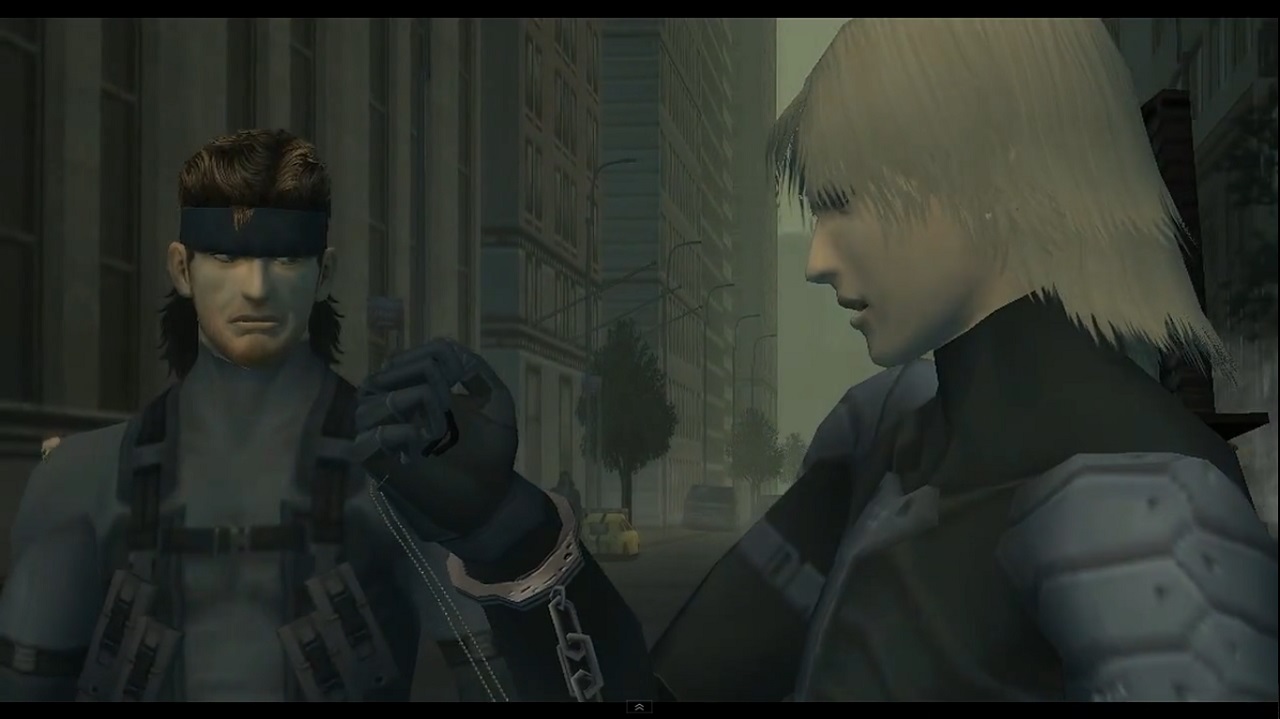
Metal Gear series - American Government/History
Made in: Japan
The Metal Gear series has always had an ample supply of self-aware anime and video game weirdness, but applying that weirdness to something as intimate to Americans as its own history and government only multiplies that feeling exponentially. It's one thing to hear a fictional conversation between world leaders Lyndon B. Johnson and Nikita Khrushchev; it's another entirely to realize one of the world's superpowers is dealing in walking nuclear-armed mechs. But despite its most absurd moments, there's a bizarre truth underlying how Metal Gear envisions the American government.
Take the ending of Metal Gear Solid 2, for instance. At the time, it seemed like total nonsense, as the AI that has been directing your every move exposes its plans for world domination. But the things it talks about - how information never disappears, so anyone can cling to a specific 'truth' they believe in - is particularly prophetic in hindsight, especially in the face of what's going on with the Internet, the 24-hour news cycle, and current events in American government. And Metal Gear Solid 4's exploration of private military corporations may be exaggerated (never mind the presence of numerous bipedal battle tanks), but it's no secret that the US government uses PMCs to sub-contract much of its work. Metal Gear Solid may go way beyond realism in many respects, but many of its core concepts are generally based on fact. In many ways, the series isn't about what 'is' or 'was' in American history, but rather what 'could be' or 'could have been' - if things were a bit more like one of Otacon's Japanese animes, anyway.
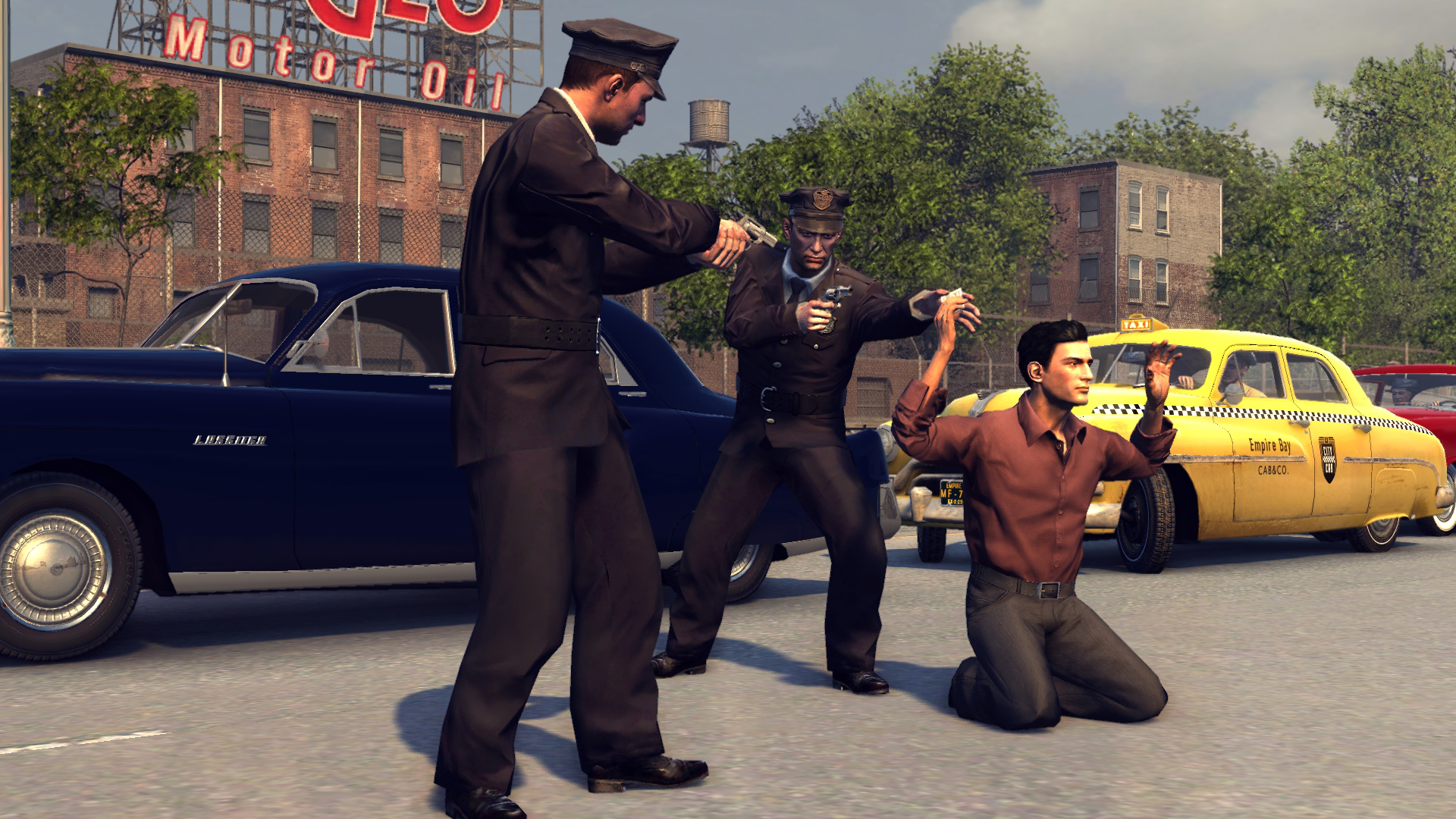
Mafia 2 - 40's & 50's Americana/Gangster films
Made in: Czech Republic
Like Alan Wake, Mafia 2 makes no effort to hide where its influences come from. Evoking strains of classic gangster movies, Mafia 2 takes bits and pieces from films like The Godfather, Goodfellas, and On the Waterfront, sprinkles in some classic 1950's tunes, and sets it all in a GTA-style open world that uses its city to flesh out its setting and story, rather than fill it with a bunch of random minigames and side missions.
The game opens on protagonist Vito Scaletta as he reminisces on his past while looking through an old photo album. Born and raised in Sicily, Vito immigrated to Empire City along with his family when he was a young boy. Once again, the 'American Dream' turns out to be a sham, as his father can barely afford to make ends meet at his grueling job on the docks, so Vito does what he can to help his family: he turns to a life of crime. The fictional city is an amalgamation of New York City, Chicago, Los Angeles, Boston, and Detroit during the mid-20th century, and while it doesn't feel like any one of them in particular, it certainly evokes nostalgia of America's biggest metropolises post-World War Two. Mafia 2 is essentially a pastiche of gangster movie tropes, but 2K Czech uses those tropes to tell a surprisingly authentic story of the difficulties of rising out of poverty in a large city, the rise of modernity in American society, and the racial tensions of the era.
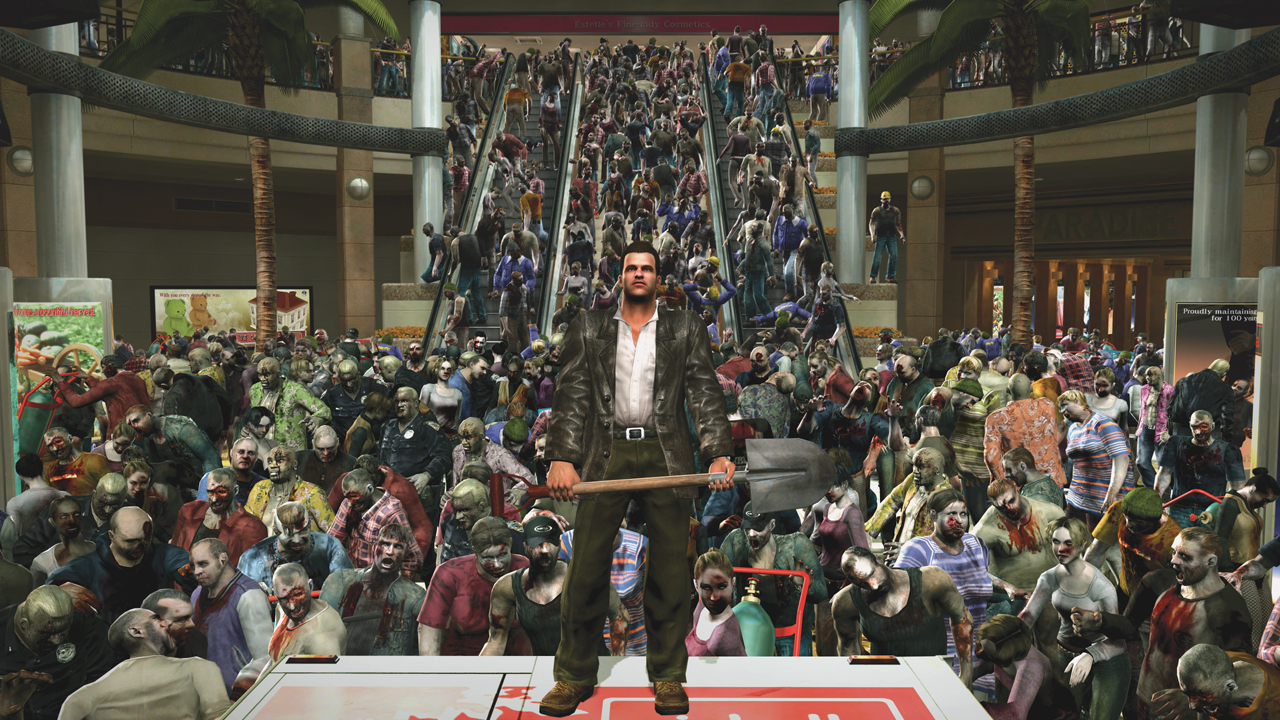
Dead Rising - Consumerism
Made in: Japan
Ahh, consumerism - the hallmark of the American economy. And what better way to celebrate consumerism than to head to your local shopping mall and spend, spend, spend? Well, unless the malls overrun with mindless zombies, that is. There's probably a metaphor in here somewhere, but hell if I know what it is. Anyway, the classic tale was initially told by the George Romero flick Dawn of the Dead, but Capcom takes that idea and lets you fend off zombies while shopping until you drop.
The mall itself is enormous, featuring everything you could ever possibly want in a single shopping center. It's your one-stop-shop for televisions, CDs, children's clothing, power drills, books, restaurants, swords (!), and more. It's even got a roller coaster! Virtually everything that isn't nailed down can be turned into a weapon, or worn, or eaten, leading to situations where our hero Frank West is bashing zombie skulls with a sledgehammer while wearing a tutu. It seems a bit ridiculous to run around in a mall this huge, but it's actually loosely based on the Mall of America, which has over 500 stores and an actual theme park in the center. If there's one thing Dead Rising gets right, it's that Americans sure love to shop - but most of America's malls aren't even close to being as big as they are in this game.
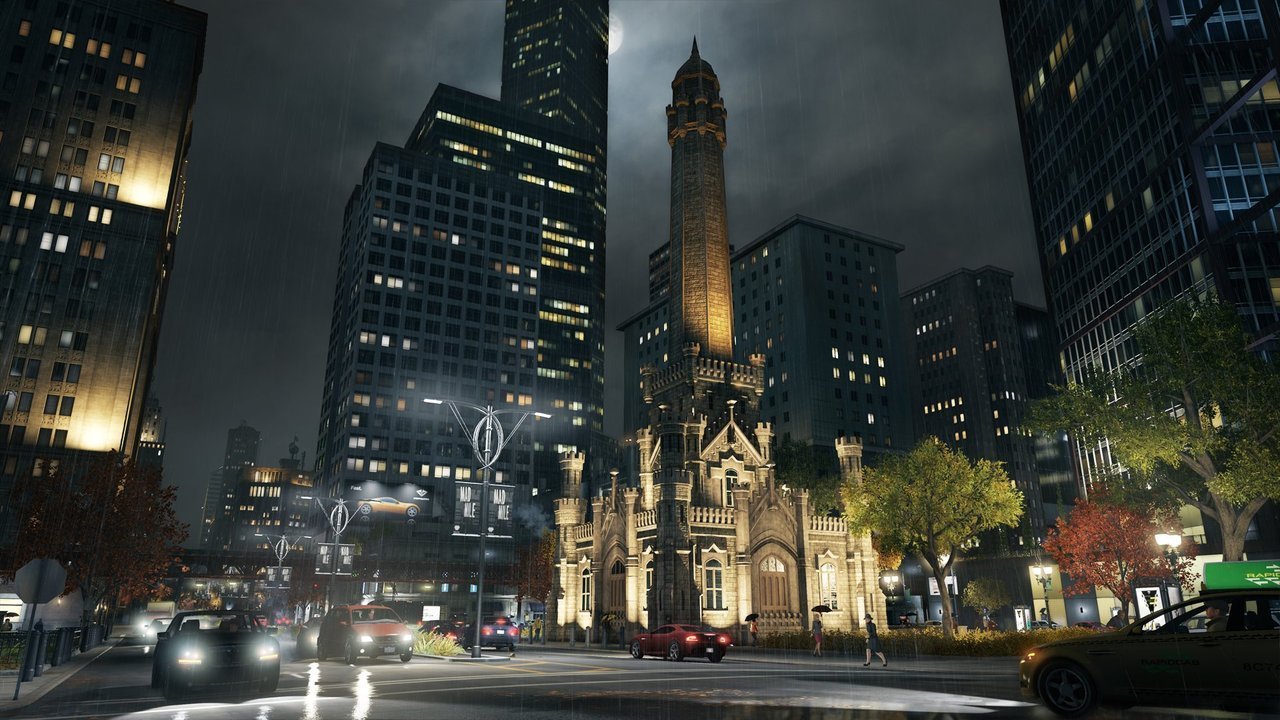
Watch Dogs - Replicating Chicago and its history of crime
Made in: Canada
Many games on this list try to evoke the feeling of being in America, but as much as Liberty City or Empire Bay feel like New York, their cities are facsimiles of the real thing. Ubisoft's futuristic crime thriller Watch Dogs, on the other hand, tries to replicate Chicago with painstaking accuracy. While it takes some liberties with the size of the city and the landmarks inside it, Watch Dogs' version of Chicago is actually stunningly accurate.
Chicago has a vast history, filled with legendary gangsters, dramatic shootouts, and iconic architecture, and Watch Dogs serves as pretty decent virtual tour guide through the city's greatest hits. You can hop in your virtual car and drive to the exact virtual spot where the Saint Valentine's Day Massacre took place in 1929 - and the game will even give you a mini history lesson when you get there. Millennium Park (complete with the bean-shaped Cloud Gate sculpture), the Wrigley Building, even the Marina Towers, while not one-to-one recreations, are close enough to make you feel like you're actually in the Windy City. It's so accurate, in fact, that someone was able to get around parts of the city strictly using his memory of the game's map. The plot itself is rather ridiculous, a high-tech tale of corruption and revenge, but parts of it do have roots in the city's long history with organized crime.
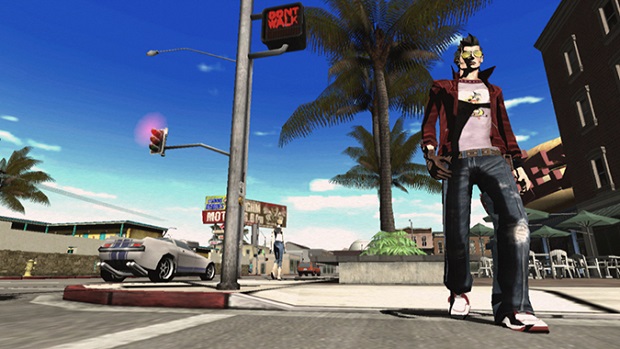
No More Heroes - Obsession with violence
Made in: Japan
Admittedly, No More Heroes is probably the most over-the-top entry here, but at first glance, the city of Santa Destroy looks like any other Californian city. It's got the palm trees, the wide stretches of sandy beaches, and the endless sunshine. But if you look closer, you'll notice that the entire city has an absurdly violent streak, and you'll find that No More Heroes becomes a commentary on America's fetishization of violence as its gameplay revels in gleeful geysers of pixelated blood.
First, there's the name of the city itself: Santa Destroy, a peculiar combination of words that immediately evokes an air of wanton violence. A quick drive around the city on your massive Akira-style motorcycle will reveal a wide variety of shops and locations, each with names that feature a strange fascination with violent activities, with a heavy focus on wrestling. There's Burger Suplex and Destroyer Antiques, and locations like the Atomic Drop Ward and Body Slam Beach fill out the rest of the city. Local ad company K-Entertainment is actually a front for a corrupt organization that assigns contract killings. There's also the Destroy Stadium, home of the Santa Destroy Warriors, who, according to the in-game map, lead the league in "violence towards fans." And the main character, Travis Touchdown, has no problem murdering people with the beam katana he won in an online auction. Despite how obsessed the city is with violence, Santa Destroy is a surprisingly safe place to live - outside of the events put on by the United Assassinations Association, of course.



